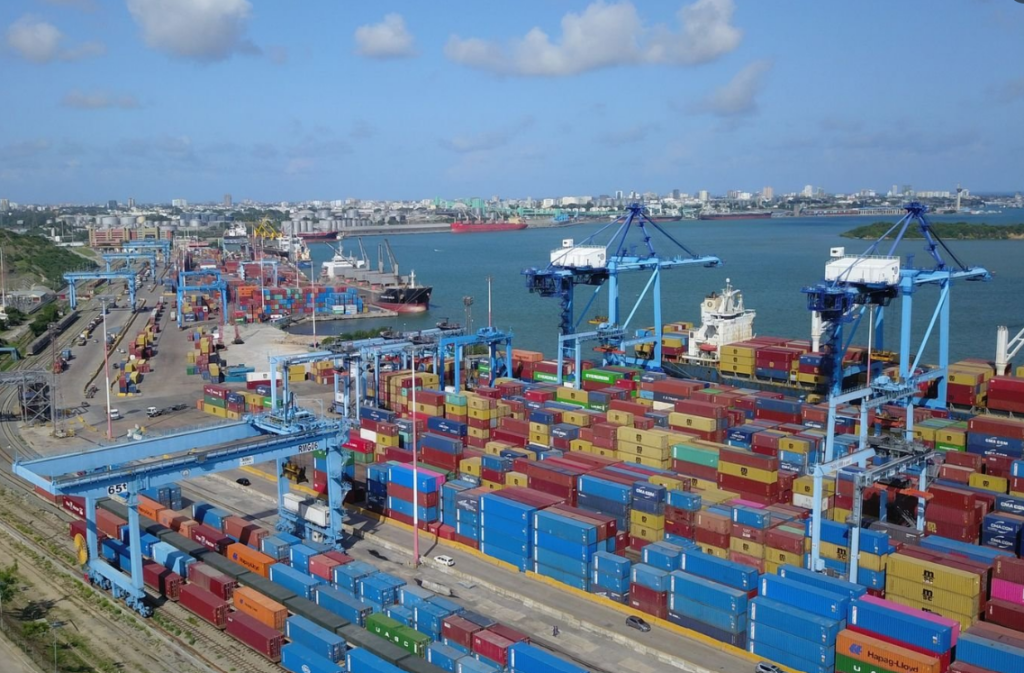- Kenya’s trade deficit rises amidst government push to grow exports
- The widening trade deficit indicates that the country’s capacity to create jobs locally and support its currency has dropped.
- Similarly, transportation and storage sectors slowed to 3.8 per cent in comparison to 6.6 per cent during the review period.
An increase in the value of imports into Kenya has widened the country’s trade deficit with its partners by Sh20 billion in the first quarter of 2024 compared to the same time last year, data by the Kenya National Bureau of Statistics (KNBS) shows
This saw the balance of payments widen from Sh110.5 billion in the first quarter of 2023 to Sh131.2 billion in the first quarter of 2024.
The statistics agency attributed this to increased expenditure on leading import commodities of petroleum and industrial machinery, particularly air transport equipment.
The favourable export earnings from tea and horticultural commodities that resulted in a 28 per cent increase in merchandise exports to Sh298.4 billion, were not sufficient to reduce the trade deficit.
Further a 17.9 per cent increase in merchandise imports on a free-on-board basis exacerbated the performance of Kenya to a tune of Sh640 billion.
free on board [FOB], is a term used in international shipping. It means that the selling price includes delivery costs up to a specific point, covered by the seller.
Read Also: Kenya in fresh bid to regain lost petroleum exports market in EAC
Kenya’s Trade Deficit Rises
“Net income from services registered a notable decline during the period under review from Sh40.7 billion in the first quarter of 2023 to Sh26.4 billion in the first quarter of 2024. This was observed across exports of the majority of the service categories which declined during the review period,” KNBS said in the Q1 2024, report.
Earnings from domestic exports increased by 19.5 per cent in the period but were overshadowed by imports in the first quarter of 2024 which increased by 16.0 per cent compared to the first quarter of 2023 to hit Sh684.0 billion.
KNBS says the improvement in exports was largely supported by an increase in domestic exports of tea and horticultural products, which jointly increased by Sh30.6 billion
Other exported commodities which registered significant increases in the quarter under review were articles of apparel and clothing accessories, and essential oils.
During the review period, earnings from domestic exports of titanium ores and concentrates more than halved compared to the corresponding period of 2023, primarily on account of decreased quantities of exported titanium ores and concentrates.
Analysis by Broad Economic Category (BEC) classification revealed that commodities under the food and beverage category accounted for the biggest proportion of total revenue from domestic exports in the review period at 45.6 per cent.
On the contrary, expenditure on imported chemical fertilizers and unmilled wheat declined from Sh32.1 billion and Sh26.9 billion to Sh9.7 billion and Sh19.3 billion. Non-food industrial supplies made up the largest share of the import bill at 34.3 per cent in the review period.
Spending on fuel and lubricants was Sh173.8 billion, a 19 per cent increase from the first quarter of 2023, making up 25.4 per cent of the total import bill.
In the period The Kenyan economy slowed by 0.5 per cent in quarter one of this year, weighed down by decelerating growth in the construction as well as transportation, and storage sectors.
The Kenya National Bureau of Statistics (KNBS) Quarterly Gross Domestic Product Report shows that growth in the construction sector dropped to 0.1 per cent in the three months to March 2024, down from a growth of 3 per cent during a similar period in 2023.
“Cement consumption declined by 12.7 per cent to stand at 1,949.9 thousand metric tons from 2,234.2 thousand metric tons in the corresponding period of 2023,” KNBS says in the quarterly report.
“The quantity of imported bitumen decreased from 25,482.6 metric tons recorded in the first quarter of 2023 to 17,237.8 metric tons in the period under review,” it adds.
Similarly, transportation and storage sectors slowed to 3.8 per cent in comparison to 6.6 per cent during the review period.
“Electricity and Water Supply sector recorded a decelerated growth of 2.4 per cent in the first quarter of 2024 compared to a growth of 3.7 per cent in the corresponding quarter of 2023.”
However, agriculture, forestry, and fishing activities grew by 6.1 per cent, followed by real estate (6.6 per cent), financial and insurance (7 per cent), information and communication (7.8 per cent), and accommodation and food services (28 per cent).
“Similar to the first quarter of 2023, agricultural production was vibrant in the corresponding quarter of 2024, owing to favourable weather conditions that supported crop and animal production during the quarter,” the report continues.
Read Also: Kenya Looking to Boost Exports to $11.5 billion by 2028.
